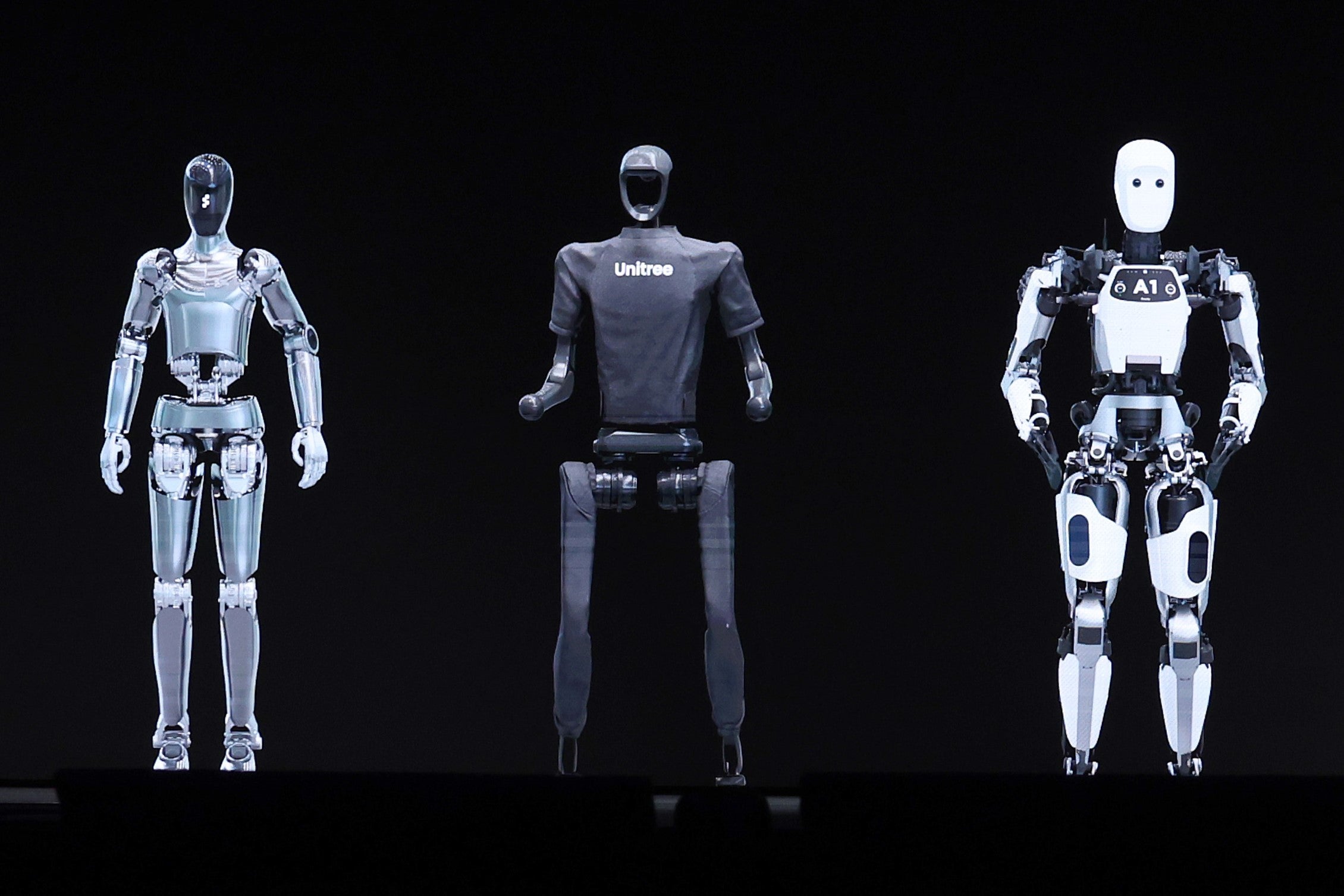Is the AI bubble about to burst?
The half-a-trillion-dollar fall in chip-maker Nvidia’s shares – days after it briefly surpassed Microsoft and Apple as the world’s most profitable company – could prove to be more than a market correction, says James Moore


The numbers behind the end of AI kingpin Nvidia’s brief reign as the world’s biggest company are staggering.
The US chip manufacturer has had more than $550bn (£433bn) wiped from its value since the sellers got to work and blew the top off its Thursday peak. That’s a more than half-trillion-dollar dive, and the biggest three-day value loss for any company in history.
To put that in context, Britain’s top three most valuable companies – drugs giant AstraZeneca, oil major Shell and international banking group HSBC – are worth a combined £500bn ($633bn), just a little bit more than has been shaved from Nvidia’s market value over a couple of days.
Is this, then, a sign of an AI bubble popping? Time to run for the cover of something nice and safe and boring like, perhaps, HSBC, or another too-big-to-fail bank with solid earnings and regular dividend payments?
Perhaps we can learn a few lessons from history. One of the most famous examples of a bubble – that is, a surge in price without regard to the underlying earnings or true value of an asset – came in the late 1990s, when unwary investors had jumped into anything with a dotcom label. Some of those among the Brit contingent would pump out results boasting of their page impressions rather than the revenue they had earned.
People who expressed fears about the buckets of cash they were burning were regularly dismissed as doom-mongers, even when they included the likes of Warren Buffett. The legendary investor shunned the sector because he couldn’t see what technology businesses would look like in 10 years’ time. Many of those companies didn’t last.
The herd mentality that drives speculative bubbles is very real in tech, partly because of the spectacular wealth showered upon early investors in success stories such as Google, Amazon and Apple. This has driven a frantic search for the next big thing.
Some spectacular busts have been the result. A good example is that of Theranos, which touted revolutionary blood testing tech and raised hundreds of millions of dollars, only for its grandiose claims to be exposed as wildly exaggerated. CEO Elizabeth Holmes and former president Ramesh “Sunny” Balwani were ultimately convicted of fraud and jailed.
Nvidia is not on the same planet. It boasts a hugely impressive record of revenue and earnings growth, which serve to underpin its still impressive valuation. In its first three-month quarter of the 2025 fiscal year, the company reported record revenues of $26bn, up 18 per cent compared to its final quarter of the previous year, but up 262 per cent when compared to the same period of that previous year. Net income (profit) of $14.9bn was up 21 per cent on the quarter but 628 per cent on the year.
The group, still valued at more than $2tn in total, split its hugely expensive shares. Holders of one received ten new ones and a cash dividend of $0.01 on each, an increase of 150 per cent on the previous year’s payout.
Another point worth mentioning: the group has not missed Wall Street analysts’ earnings forecasts since the quarter ending October 2022. As for revenues, it hasn’t missed the scribblers’ predications since before 2020. That is a mightily impressive performance.
Take all that into consideration, combined with the excitement about Nvidia’s adventures in AI, not to mention the fingers it has in many other pies, and it shouldn’t be at all surprising that the Nvidia share price had been rocketing until the end of last week.
Some of its investors clearly took a look at their portfolios, and maybe at the US economy as well, and decided to book some of their profits, an eminently sensible thing for them to do. Nvidia’s wobble is huge in terms of the money wiped from its value – but relatively small when set against the company’s vast size.
This is, then, a correction. A relatively mild one for now.
The trouble is that Nvidia and its mega-corp tech peers are now so big that if they sneeze, the whole of the S&P 500 share index catches a cold, which has the potential to spread around the investment markets of the world.
Nvidia was solely responsible for roughly a third of the rise posted by the US’s S&P 500 share index in 2024. The S&P is, by the way, the one to watch if you want to get a true picture of the health of the US stock market. It is much more broadly based than the still widely quoted Dow, an industrial average rather than a true stock index such as our own FTSE 100.
Bear this in mind, too. A small corps of very rich, very powerful techs have a disproportionate influence not just over the stock indices they are in but over all of us, the savings we hold and the industries we work in. That is what we really should be concerned about.
Join our commenting forum
Join thought-provoking conversations, follow other Independent readers and see their replies
Comments